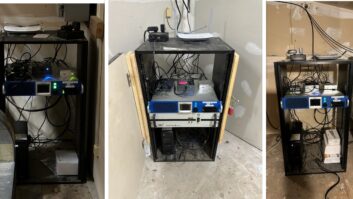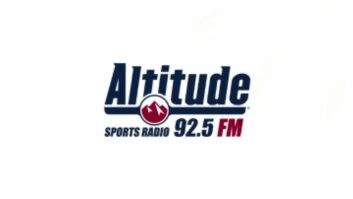
The author is CEO of SSR Communications, owner of WYAB(FM) in central Mississippi.
A 12 kW power option for eligible Class A FM stations may be close at hand.
Just four months after the Federal Communications Commission wrapped up formal comments in the MB 18-184/FCC 18-69 FM Class C4 proceeding, sitting Commerce Committee Chairman Sen. Roger Wicker (R-Miss.) shared his thoughts about the proposal with Chairman Ajit Pai in a December 2018 letter. To put it succinctly, he approves:
“I welcome the Commission’s June Notice of Inquiry to examine proposals for a new FM radio broadcast class,” Sen. Wicker wrote. He went on to say that the FM Class C4 plan “could also help small and rural radio stations, in particular, to enhance their listening areas and better serve the public interest.”
Chairman Pai answered, “As some have advocated, this reform could allow many Class A FM stations to broadcast with increased power, which could be especially important for small, minority-owned stations that currently cannot serve their entire communities. … I look forward to working with you and my colleagues to improve the quality of radio service throughout the United States.”
SSR Communications and the Multicultural Media, Telecom and Internet Council originally submitted the FM Class C4 petition for rulemaking to the commission in January 2013. Five years later, in June 2018, the FCC issued a Notice of Inquiry related to the proposal in order to gauge interest, to which over 100 small broadcasters filed letters in full support.
If the MB 18-184 / FCC 18-69 proceeding were to be approved in full, hundreds of eligible Zone II Class A FM stations would be able to increase in maximum effective radiated power level from 6 kW to 12 kW and to the proposed FM Class C4 designation. Associated FCC Section 73.215 rule changes would permit greater tower siting flexibility for small stations.
Backers of the FM Class C4 initiative seem to have reason to celebrate. The current FCC chairman has expressed his support of the idea on several occasions now. Other proponents include MMTC, hundreds of small broadcasters, and now Sen. Wicker, whose Senate Commerce Committee is in charge of FCC oversight.
Many small broadcasters are asking the commission to formalize the FM Class C4 idea with a Notice of Proposed Rulemaking. If, however, a NPRM is not forthcoming, an alternative procedure for Class A FM stations seeking service improvements may exist. Like many nascent broadcast proposals in the past, a waiver-based option could represent the elusive “path forward” in the FM Class C4 initiative.
THE WAIVER ALTERNATIVE
In July 2018, Commander Communications filed a waiver-based application for a 12 kW facility for WRTM(FM) in Sharon, Miss. The WRTM waiver potentially offers two key advantages over a formal NPRM:
- The waiver guarantees no disruptions to FM translator or low-power FM facilities.
- The waiver could serve as a model for other stations seeking to apply for such changes and would offer immediate relief for those Class A FM stations in need.
At present, however, the WRTM Waiver application remains in the commission’s processing queue, not yet granted nor dismissed.
Although some have suggested that a waiver-based model could short-circuit the traditional rulemaking process, there have been plenty of far-reaching proposals that began life as a simple waiver request. Just ask any of the thousands of AM station licensees that broadcast on a cross-service FM translator, for instance.
As always, work is ongoing in the FM Class C4 effort. Over the course of two separate visits in February 2019, representatives of MMTC and SSR Communications visited commission advisors and Media Bureau staff and discussed the status of the MB 18-184/FCC 18-69 FM Class C4 proceeding. Although commission representatives could not provide a definitive timetable as to when the proposal would come to fruition, the tone of the meetings was very positive. It seems there may be enough of an appetite at the commission for the proposal to proceed.
If either of the FM Class C4 NPRM or WRTM(FM) waiver-based avenues were to crystallize this year, many small and independent broadcasters would be beyond ecstatic. Firm support in key places is higher now than at any other point in the proposal’s history; 2019 could very well be the year in which FM Class C4 becomes a reality.
Comment on this or any story. Email [email protected] with “Letter to the Editor” in the subject field.












